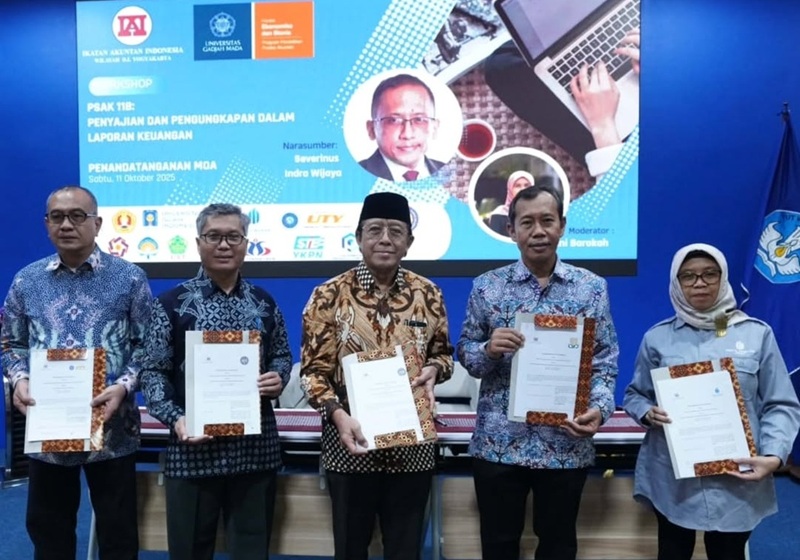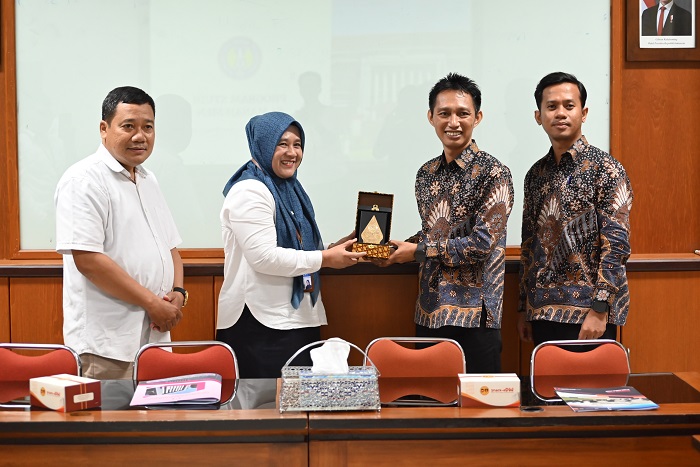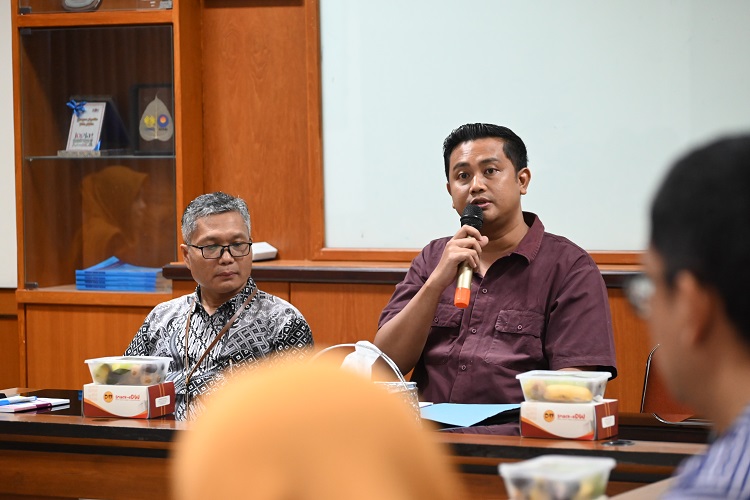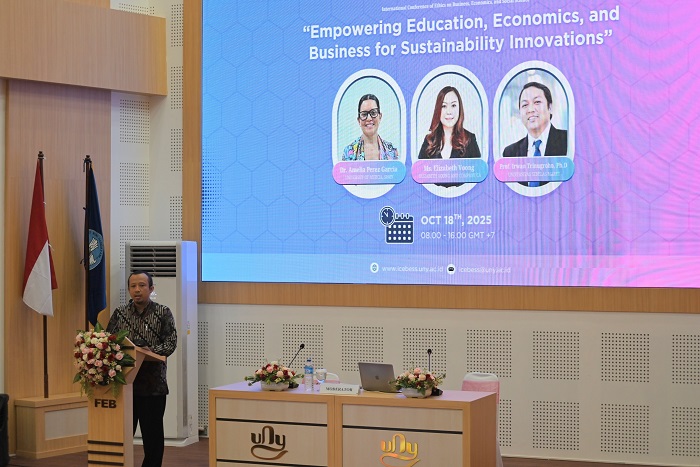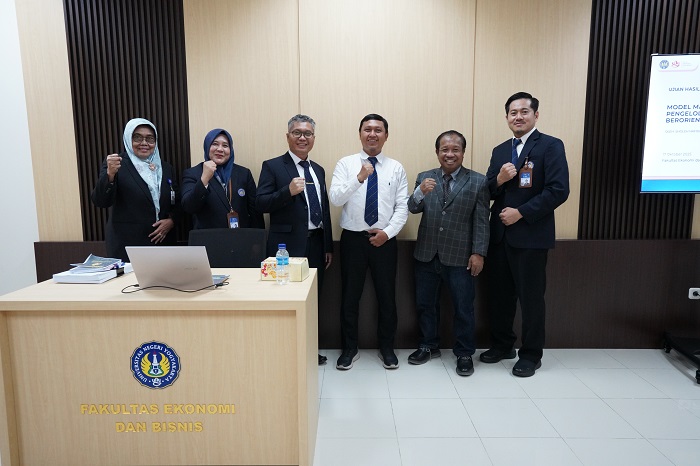FEB UNY Hosts Entrepreneurship Seminar for Students from Universitas Mandiri Subang
Submitted by feb on Tue, 11/11/2025 - 05:06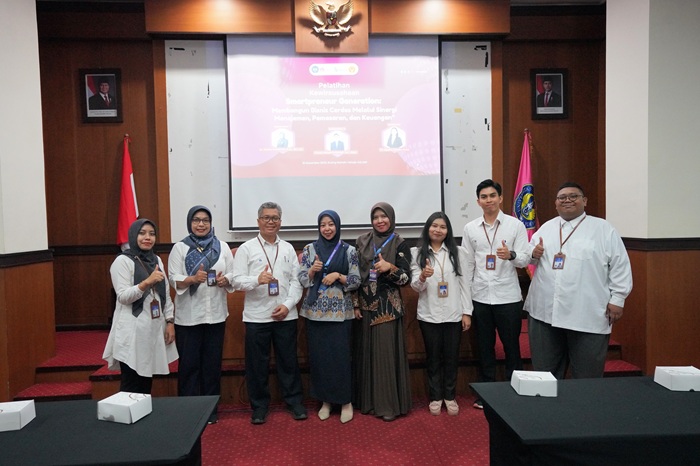
Yogyakarta — The Faculty of Economics and Business, Universitas Negeri Yogyakarta (FEB UNY) welcomed a group of 40 students and 2 accompanying lecturers from the Faculty of Economics, Universitas Mandiri Subang, in a collaborative entrepreneurship seminar themed “Smartpreneur Generation: Building Intelligent Businesses through Synergy in Management, Marketing, and Finance.” The delegation was led by Dr. Sri Maria Ulfha, M.M., Dean of the Faculty of Economics Universitas Mandiri, and Yenni Yunianingsih, M.Pd., Vice Dean II.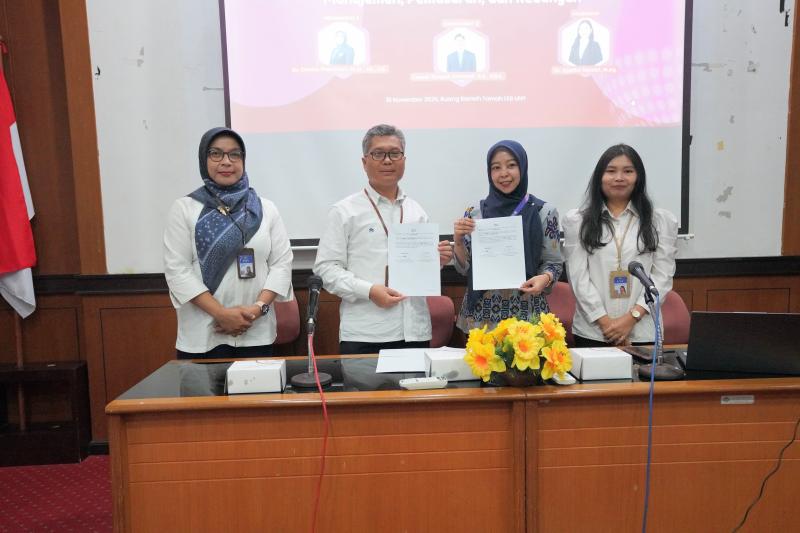
The event began with opening remarks from Dr. Sutirman, M.Pd., Dean of FEB UNY, who introduced the faculty’s history as a relatively young and dynamic institution—established in 2011 after its separation from the Faculty of Social Sciences. He highlighted that all undergraduate programs at FEB UNY are accredited Unggul and internationally certified by FIBAA. Dr. Sutirman also encouraged students and lecturers from Universitas Mandiri Subang to consider pursuing further studies or collaborative activities at FEB UNY. He added, “Today is not only a visit but also an opportunity to gain valuable insights from our speakers: Dr. Denies Priantinah and Mr. Caesar Rosyad Achmadi, M.B.A.”
Dean Dr. Sri Maria Ulfha, M.M., expressed her appreciation in her remarks, emphasizing that collaboration between Universitas Mandiri and FEB UNY has been ongoing since 2024. This visit, she noted, marks another step forward in strengthening academic cooperation. She encouraged students to make the most of the learning experience, stating, “Take as much knowledge as you can. May this partnership continue and bring long-term benefits.” The event was moderated by Dr. Agatha Saputri, M.Pd., lecturer of Accounting Education and Head of Public Relations & International Affairs at FEB UNY.
The first session featured Dr. Denies Priantinah, M.Si., Ak., C.A., Vice Dean for Research, Collaboration, Information Systems, and Business Affairs (RKSIU), who delivered a presentation titled “Entrepreneurial Financial Management.” She stressed that many student-led businesses fail not due to weak ideas but due to poor financial management. Drawing from her module, she explained common mistakes such as mixing personal and business funds, failing to record transactions, mismanaging cash flow, and being unaware of actual profit or loss. Dr. Denies outlined the financial cycle, the fundamentals of cash management, pricing strategies, budgeting techniques, and the importance of financial discipline. “If personal and business money are combined, profit becomes nothing more than a story,” she emphasized.
The second presentation was delivered by Caesar Rosyad Achmadi, M.B.A., lecturer from the Department of Management FEB UNY, who spoke about “Entrepreneurship with Artificial Intelligence.” He described AI as a virtual co-founder for modern entrepreneurs, capable of assisting in idea generation, product naming, design, market analysis, and digital marketing strategy. Using practical demonstrations, Caesar showcased how AI tools such as ChatGPT and creative applications can produce short promotional videos, naming strategies, and product concepts. He presented a sample business concept “Onigyo,” a healthy onigiri product designed using AI—from recipe innovation to eco-friendly packaging and pricing strategy. Students were then guided to create their own short marketing videos, with three top works rewarded during the session.
Throughout the seminar, students from Universitas Mandiri Subang showed strong enthusiasm, actively participating in discussions, demonstrations, and hands-on workshops. The collaboration provided a valuable platform for expanding students’ understanding of financial literacy, digital innovation, business creativity, and strategic entrepreneurship in the era of AI-driven markets. FEB UNY hopes that this activity will continue strengthening academic synergy between the two institutions.
This entrepreneurship seminar contributes to several Sustainable Development Goals (SDGs), including SDG 4 (Quality Education) by providing high-quality entrepreneurial and financial learning; SDG 8 (Decent Work and Economic Growth) through the development of youth skills in creating business opportunities; SDG 9 (Industry, Innovation, and Infrastructure) through the use of AI in business innovation; and SDG 17 (Partnerships for the Goals) by strengthening inter-university cooperation toward sustainable academic development. (fdh)



